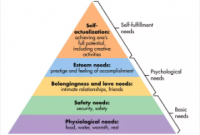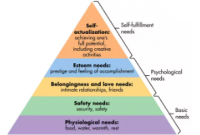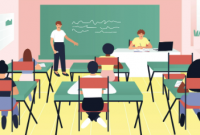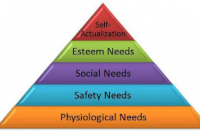The Hierarchy of Needs by Abraham Maslow is one of the most popular theories in this world. This one has a lot of uses and advantages. It is not only great for the adults but also for children, even the ones who are under five years old. In this post, you will be able to find out how this theory can be used in early childhood education. If you are interested about it, go check out everything below and do not skip any.
According to an American psychologist named Abraham Maslow, it is a must for a certain series of needs to be met before any child could learn. Apparently, his theory has been confirmed by the current brain research.
There are a total of five levels in the theory by Abraham Maslow known as Hierarchy of Needs. Do you know what are they? Every single level is explained as follow:
- Physiological needs: These needs include food, sleep, exercise, and health.
- Safety needs: These needs include physical and emotional.
- Love and belonging needs: These needs include affection that is shown to the child, trust of those around them, someone who listens, daily order, a right to privacy, and unconditional love.
- Self-esteem needs: These needs include the need of getting the chance to do something, to make a choices, and to be successful.
- Self-actualization needs: The child is in the process of developing abilities and strengths, as well as in the process of strengthening the problem solving skills.
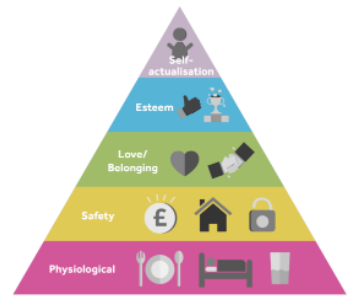
It is unlikely for a child whose stomach is empty to learn. Not only that, it is also impossible for those who are stressed to learn something. In addition, the list of the ones who cannot learn include those who are in the environment with no love.
As it has been widely known, the chemicals are produced by the brain of those who feel emotionally or physically threatened, which disturbs the process of learning. When a child is stressed, their brain will be put in the survival mode and it sacrifices the higher order thinking skills. If the stress lasts long, the capacity of the brain for understanding, meaning, memory, and analytical thinking may be reduced. Take note that one of the most important things is to make the conditions well.
If one day you see a child does not feel like they want to learn, there is a possibility that they do not feel safe. In this case, you are suggested to have a conversation with them. When talking to them, you can also mention how hard it is for the parents to take care of them.
In case the safety is not the case, if they are still having a hard time to learn, the next thing that you can try is to check out their sleeping patterns. Not only their sleep time, the foods that they consume is also important. In addition, you have to also check out their relationship with their friends and some other physical or emotional needs. Be the first one to help them in every aspect.
The needs of the children should not only be fulfilled by the educators but also by the parents and the caregivers, especially in this current pandemic when the process of teaching and learning is done online at home. If you are a parent or a caregiver, you should take note about the five levels of Hierarchy of Needs by Abraham Maslow for the sake of these children. Here is everything to check out:
- Personal growth
As a parent or a caregiver, you should do a few things at home, including helping the children to identify their potential and look for the personal growth and new experiences; helping them to achieve higher levels of knowledge, which can be done by playing games that are related to learning, the ones with increasingly more challenging questions or activities; doing some researches and ask the others about the new strategies that can be used to support the learning, personal development, and well being of the children.
- Self-esteem
There are several things that you can do with the self esteem of the children, such as recognizing the accomplishments of the children and the respect that they have for the others; helping them to get the access to the learning experiences that are appropriate for their certain needs; acknowledging their emotional needs and giving meaningful and individualized praise, as well as giving the chances to share the knowledge with the others.
- Love and belonging
When it comes to love and belonging needs, the things that you can do for the children include giving them the chance to maintain the connections with the family members, friends, and a sense of belonging (for instance, sending emails, walking by the window of the neighbor and greeting them); helping them to connect with teachers and classmates; and helping them to understand that the others share the same situation as them.
- Safety and well-being
In this level, you should make sure of their physical safety and their feelings. The next thing that you also have to do is to understand about the things that may be harmful for the children. As a parent or a caregiver, you have to know what goal that they set and what way that they have to accomplish it. As it is still pandemic, you are also recommended to let them know about the virus or some other harmful things. Please explain to them why it changes the life of everyone all around the world. Besides, do not forget to also state the things that they can expect to move forward.
- Basic needs
As for the basic needs, these include providing the children good food, water, and sleep; making the space for them safe and quiet so that they are able to focus on learning; allowing them to use personal or community technology if it is required by the process of learning; and keeping them at home and limiting their exposure to the harmful things.

